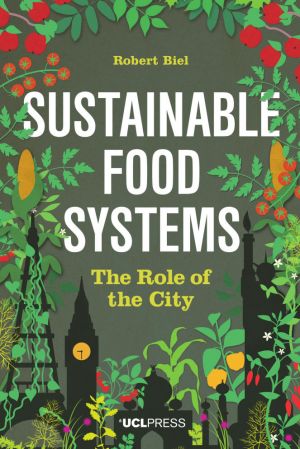Sustainable Food Systems
The Role of the City
by Robert Biel, Senior Lecturer, The Bartlett
DescriptionTable of ContentsDetailsHashtagsReport an issue
Biel's approach connects with current debates about agroecology and food sovereignty, asks key questions, and proposes lines of future research. He suggests that today's food insecurity - manifested in a regime of wildly fluctuating prices - reflects not just temporary stresses in the existing mode of production, but more profoundly the troubled process of generating a new one. He argues that the solution cannot be implemented at a merely technical or political level: the force of change can only be driven by the kind of social movements which are now daring to challenge the existing unsustainable order.
Drawing on both his academic research and teaching, and 15 years' experience as a practicing urban farmer, Biel brings a unique interdisciplinary approach to this key global issue, creating a dialogue between the physical and social sciences. 






Book Description
Faced with a global threat to food security, it is perfectly possible that society will respond, not by a dystopian disintegration, but rather by reasserting co-operative traditions. This book, by a leading expert in urban agriculture, offers a genuine solution to today's global food crisis. By contributing more to feeding themselves, cities can allow breathing space for the rural sector to convert to more organic sustainable approaches.Biel's approach connects with current debates about agroecology and food sovereignty, asks key questions, and proposes lines of future research. He suggests that today's food insecurity - manifested in a regime of wildly fluctuating prices - reflects not just temporary stresses in the existing mode of production, but more profoundly the troubled process of generating a new one. He argues that the solution cannot be implemented at a merely technical or political level: the force of change can only be driven by the kind of social movements which are now daring to challenge the existing unsustainable order.
Drawing on both his academic research and teaching, and 15 years' experience as a practicing urban farmer, Biel brings a unique interdisciplinary approach to this key global issue, creating a dialogue between the physical and social sciences.
This open book is licensed under a Creative Commons License (CC BY). You can download Sustainable Food Systems ebook for free in PDF format (16.0 MB).
Table of Contents
Chapter 1
Introduction
Chapter 2
Searching for a new model of food and farming
Chapter 3
The mainstream farming paradigm - what went wrong
Chapter 4
How systems change: crisis and rift
Chapter 5
Embracing complexity: the earth system, land and soil
Chapter 6
Dialectics of a (re)discovered sustainability
Chapter 7
Political dimensions - agriculture and class struggle
Chapter 8
Towards a new paradigm - practical guidelines
Chapter 9
Regenerating the earth system, working with climate
Chapter 10
Food, imperialism and dependency
Chapter 11
Built systems, biomimicry and urban food-growing
Chapter 12
Autonomy, radicalism and the commons
Book Details
Title
Sustainable Food Systems
Publisher
UCL Press
Published
2016
Pages
154
Edition
1
Language
English
ISBN13
9781911307075
ISBN10
191130707X
ISBN13 Digital
9781911307099
ISBN10 Digital
1911307096
PDF Size
16.0 MB
License

Related Books
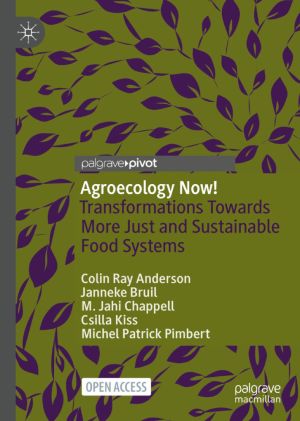
This open book develops a framework for advancing agroecology transformations focusing on power, politics and governance. It explores the potential of agroecology as a sustainable and socially just alternative to today's dominant food regime. Agroecology is an ecological approach to farming that addresses climate change and biodiversity loss w...
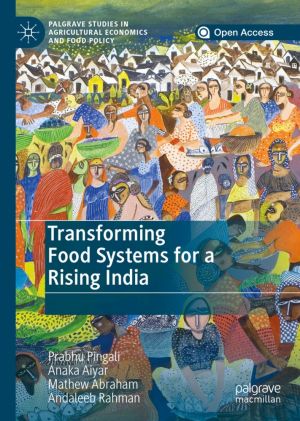
'This book… brings together high quality research, real world pragmatism and an understanding of the politics of Indian food systems.' – Lawrence Haddad, Executive Director, GAIN and 2018 World Food Prize Laureate'[The authors] have done a masterful job of [demonstrating] paradoxes of India's rapid economic growth concurrent...
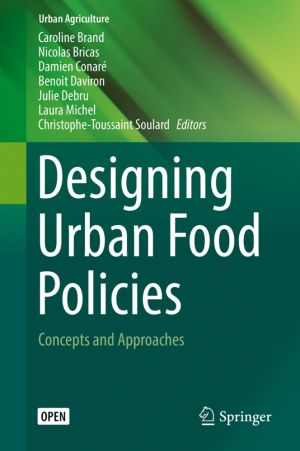
This book is for scientists and experts who work on urban food policies. It provides a conceptual framework for understanding the urban food system sustainability and how it can be tackled by local governments. Written by a collective of researchers, this book describes the existing conceptual frameworks for an analysis of urban food policies, at ...

This open book discusses the eroding economics of nuclear power for electricity generation as well as technical, legal, and political acceptance issues. The use of nuclear power for electricity generation is still a heavily disputed issue. Aside from technical risks, safety issues, and the unsolved problem of nuclear waste disposal, the economic pe...
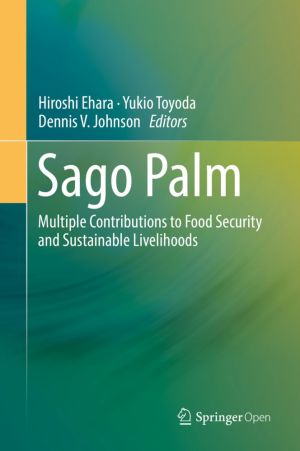
This book addresses a wide variety of events and technologies concerning the sago palm, ranging from its botanical characteristics, culture and use to social conditions in the places where it is grown, in order to provide a record of research findings and to benefit society. It discusses various subjects, including the sago palm and related species...

There is wide agreement on the need to change the prevalent agricultural models, given their negative impacts and their incompatibility with current societal issues. Agroecological transition has been promoted as a potential solution to the ecological, social and economic problems generated by these models. It however involves a systemic, multi-sca...

